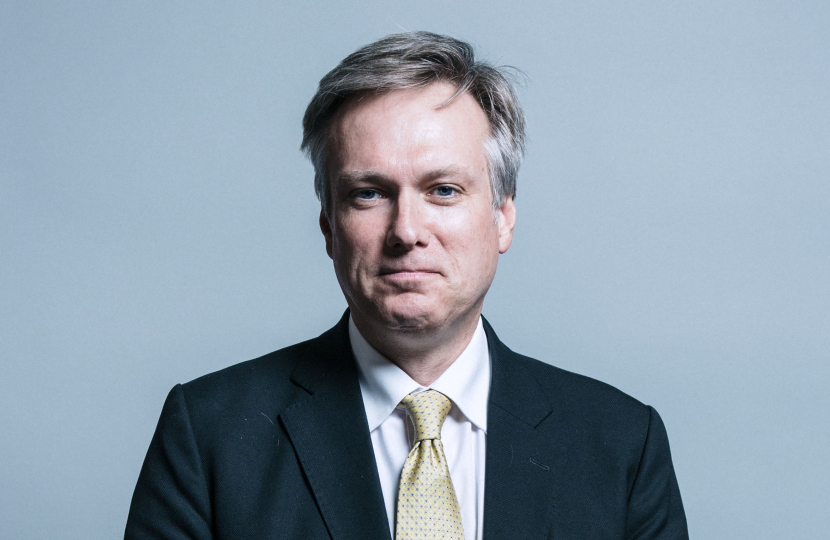
· The pandemic put huge pressure on the NHS, but the Government has made good progress on its priority to cut waiting lists, virtually eliminating waits of over two years and cutting 18 month waits by over 90 per cent from their peak – but there is more to do.
· That is why Henry Smith MP has welcomed the Pharmacy First approach, meaning 284 pharmacies across Sussex will be able to treat common health conditions without patients needing to see a GP, ensuring up to 10 million GP appointments a year are freed up as part of the Government’s Primary Care Recovery Plan.
· By sticking to the plan, the Government will continue to make progress on improving access to primary care and cutting NHS waiting lists, helping patients to receive the treatment they need more quickly.
Henry Smith MP has welcomed the launch of the Government’s Pharmacy First approach, helping patients across the local area to receive care more quickly through better use of our community pharmacies.
Henry said;
“The pandemic put huge pressure on our NHS services and as we continue with the recovery, it’s essential that patients receive the care they need quickly and easily.
“This is why I welcome Government launching the Pharmacy First approach, using the skills of our pharmacists to treat more people in the community without the need for a GP appointment – speeding up their own care as well as reducing pressure on local GP services.
“More than 280 pharmacies in Sussex have signed up to Pharmacy First ensuring that local people can access care.
“By sticking with the plan to improve access to care and cut NHS waiting lists, let’s deliver on the Prime Minister’s priority so that everyone can access the treatment they need.”
It has been confirmed that 284 pharmacies in Sussex have signed up to Pharmacy First so far, which enables pharmacists to utilise more of their medical skills and training. This will mean that patients can receive treatment for seven common health conditions from their local pharmacy without the need to visit a GP or have a prescription.
Their pharmacist will be able to help with conditions which include sinusitis, sore throat, earache, infected insect bite, impetigo, shingles and uncomplicated urinary tract infections in women. Following the assessment, the pharmacist can then supply the prescription-only medicines, including antibiotics and antivirals, to treat the problem.
The new Pharmacy First approach will not only speed up access to essential care for patients, but also help to reduce pressure on local GP services by directing people to more appropriate places to be treated. Backed by up to £645 million, 95 per cent of pharmacies across England have opted-in so far, meaning that patients will be able to receive care more quickly without the need to wait for a GP appointment.
The Pharmacy First approach builds on the other measures outlined in the Primary Care Recovery Plan last spring, including tackling the 8am rush by giving GPs new digital tools and providing more GP staff and more appointments.
In combination, the Primary Care Recovery Plan aims to free up 10 million GP appointments a year by next winter, and give the public more choice in where and how they access care.
The Government has made strong progress on improving access to primary care including meeting its manifesto pledge to deliver 50 million additional GP appointments since 2019 and recruiting record numbers of doctors and nurses for the NHS.
By sticking to the plan, the Government is delivering on the Prime Minister’s pledge to cut NHS waiting lists, delivering more care in the community and ensuring that patients receive the care they need, when they need it.
The Secretary of State for Health & Social Care, Victoria Atkins, commented;
“I’m determined to deliver faster, simpler, fairer access to care for patients, and the expansion of Pharmacy First will mean patients can get treatment for common conditions without needing to see their GP first.
“This is good news for patients and good news for the NHS. It will free up millions of GP appointments per year and mean that patients can get quick and effective treatment from their local pharmacy.
“As four in five people live within a 20 minute walk of a pharmacy, for many seeing their local pharmacist will be the easiest option – so this initiative will have real benefits for patients and help cut NHS waiting lists.”
Follow Henry daily via:


